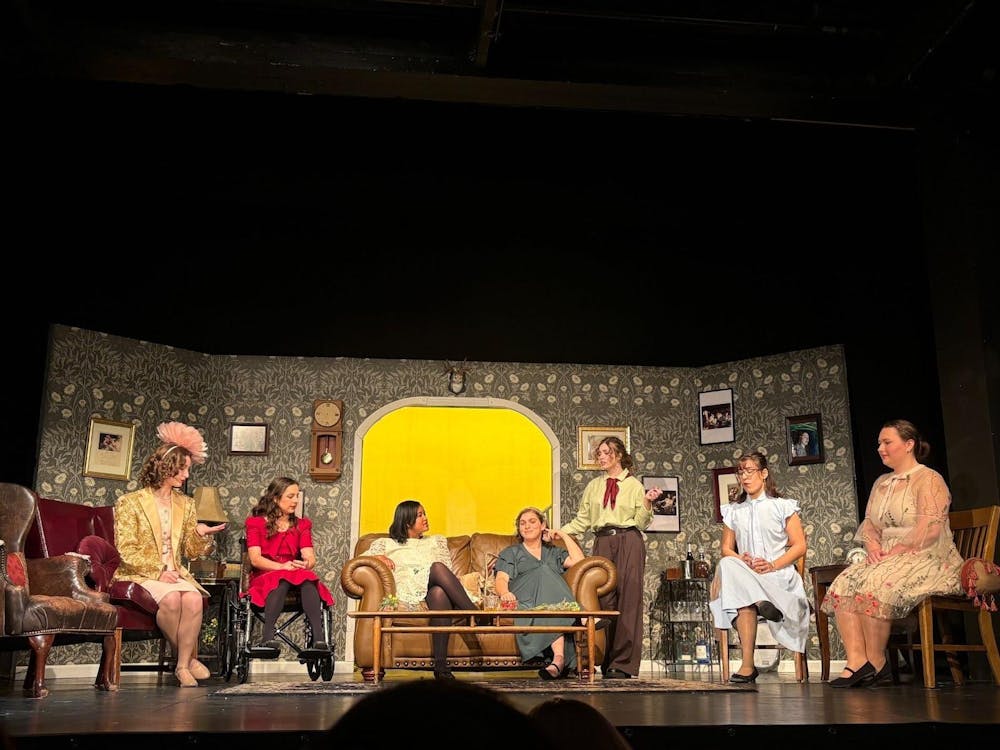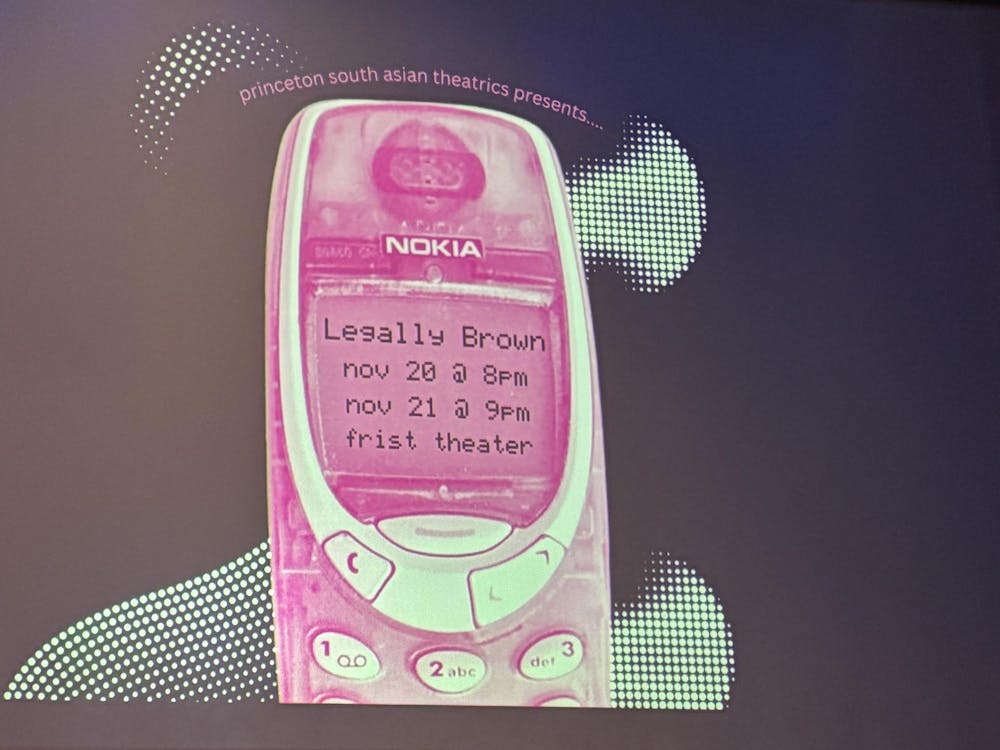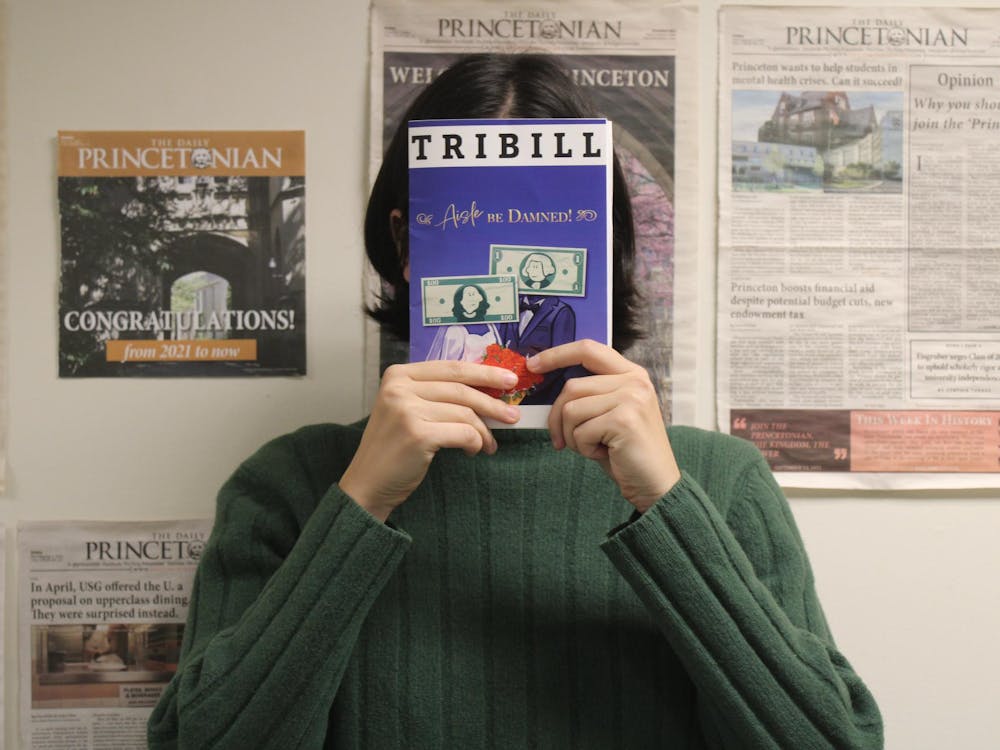What are the consequences when corruption runs so deeply in a society that it infiltrates even the purest of hearts and causes the downfall of even the brightest ideals? “Mr. Mule,” a play about a small village’s struggle with corruption during the regime of the Kuomintang in early 20thcentury China, explores just that. Written by Shen Zhou and Lu Liu and directed by Qin Xia ’16 and Eddie Chen ’16, “Mr. Mule” delivers a scathing satire on the lengths that people will take to justify their own corrupt decisions.
The play follows the plight of a small school in pursuit of extra funds. To increase their government grant, the principal and his staff decide to fabricate the existence of a fifth school employee, the so-called Mr. Mule (inspired by an actual town mule). Naturally, complicationsarise, and the school administrators are forced to present a real humanteacher when the government commissioner comes to town. What follows is an Eliza Doolittle-like transformation of the town blacksmith and a ploy that quickly begins to snowball and spiral out of control.
Klaus Cao ’18, the blacksmith-turned-fake-English-teacher, provides a powerful performance as a naïve and innocent villager caught up in scandal over his head. Cao’s body language is intentional throughout the performance ashe clearly conveys hischaracter’s metamorphosisthrough his posture, gestures and accents. His speech work, transitioning from a distinctly country lilt to the more urban and mainstream accent of the Chinese cultured and elite characters, is also impressive and complements his body language choices. There is something of a meta-instance here, as an actor plays a character who is pretending to be someone else. However, Cao makes it work well by clearly acting out the differences between the blacksmith and Mr. Mule.
Julie Chen ’17, who plays the principal’s daughter, Jia Jia, also gives a notable performance. Throughout the play, she is the only character who remains idealistic and uncorrupted. Jia Jia is also the only character who cared for the real mule in the village by feeding him and looking after him. Chen delivers a moving monologue about compassion, and the moment is heartfelt as Chen effectively channels the emotion of the character and moment.
This play also includes musical elements. Claire Hu, who plays the school’s female teacher, Yiman Zhang, performs her singing part with aplomb. The accompanying instrumentals were also impressive. Throughout the play, the use of traditional Chinese instruments and melodies further enhances the setting by aurally transporting the audience to this small village in the early 20thcentury. However, at other times, audio elements did not work as well. For instance, during some parts at the beginning of the play, percussion was used to provide emphasis during certain moments of the conversation. The resulting sounds seemed random and did not enhance the play’s dialogue.
The original “Mr. Mule” was intended to have some comedic elements, and Princeton Chinese Theatre’s production attempts to maintain some of them. Unfortunately, some of the attempts at humor fall flat. One example was in the play’s opening scene, when the school meeting escalates into a shouting match. Although the yelling is supposed to be humorous, it comes across as excessively loud and does not communicate the comedic value. There are also some inaccuracies in costuming that detract from the production. The commissioner is intended to be a caricature of a corrupt government official, as portrayed by his extravagant uniform and his avarice for funding. However, his uniform presents several anachronistic incongruities. The cap badge he wears is actually the emblem of the People’s Republic of China, when it should be the white star on a blue background of the Kuomintang. Additionally, his sidearm is a 19thcentury Colt revolver — an extremely unlikely weapon of choice for a20thcentury Chinese government official. The performance would have been enhanced by a better sense of time.
Overall, Princeton Chinese Theatre delivers a decent performance. “Mr. Mule” explores the painful questions of whether practical needs in hard times can ever justify outright corruption. While it features solid performances from the leading characters, its flat comedic scenes and prop inconsistencies hold the play back.

4 out of 5 paws.
Pros: Strong cast, apt musical elements.
Cons: Satire’s humor does not show, costuming anachronisms.








